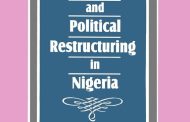The Washington Post does not think that President Vladimir Putin of Russia is comprehensively isolated by the world and lonely. The leading US newspaper which devoted substantial portion of its March 10th, 2022 edition of its pull out, Today’s Worldview listed a number of strategic countries that are not really against Putin, pointing out how “Just as Western onlookers often shrug at far-flung conflicts in the Middle East and Africa, some citizens in emerging economies are gazing at Ukraine and seeing themselves without a dog in this fight — and with compelling national interests for not alienating Russia”. Among the countries which it calls the giants of the global South are Turkey, India, China, South Africa and Brazil.

The US-based Atlantic calls them ‘autocrats but The Washington Post calls some of them the giants of the global South. As they say, language is never innocent!
Pakistan and Nigeria ought to be on this list but they are not. Pakistan might not have been listed because it is seen to be too close to China to have been railing. Nigeria, on the other hand, might not have been listed because it is, rightly or wrongly, seen as too disorganized and lacking in domestic consensus to be taken seriously.
Four of them are members of the BRICS – Brazil, Russia, India, China and South Africa. BRICS emerged in the mid 2000 as the first sign of a changing world order or what American journalist, Fareed Zakaria calls “the rise of the rest”, the ‘rest’ serving as a metaphor for non-Western global powers for the first time in history.
Each of the countries listed by The Washington Post is behaving based on historical consideration. In the case of South Africa, for instance, they cannot think of abandoning Moscow which was a key force against apartheid at a time the West was pushing for ‘constructive engagement’. The paper quotes the ex-South African president as calling Putin a man of peace in a statement. That is in addition to categorical standpoint such as that by Lindiwe Zulu, South Africa’s minister of social development who, like Zuma and another ex-president, Thabo Mbeki, studied in Moscow during the apartheid years to the effect that “Russia is our friend through and through”. The minister is reported to have told the New York Times: “We are not about to denounce that relationship that we have always had”.

Putin and President Bolsonaro of Brazil in a 2019 picture original to The Washington Post
As much as many politicians in many other African countries may not have the ideological articulation and sentiments of the South African leaders quoted above, South Africa’s position could still pass for Sub-Saharan African consensus, all the countries having passed through Western colonialism, the consequences of which they are still managing to this day. Only the Ethiopians gave the Italians a bloody beating at the battle of Adowa.
Although President Recep Tayyip Erdogan of Turkey is not violently pro-Moscow or Ukraine, saying Turkey cannot give up on either of Ukraine Russia but the Turkish press is seen by The Washington Post as recycling Putin’s de-nazification rhetoric. The Post quotes Ethem Sancak, a Turkish businessman it describes as an ally of Erdogan as saying that “The rulers of Ukraine have broken with their own history and have become puppets of NATO”.

Nigeria is perceived to be too disorganised at home arising from lack of elite consensus to be taken seriously
Quoting an International Crisis Group report, the newspaper posed India as responding to the conflict “with the blunt realism of a rising, aspirational power that does not want to get caught between Russia and what Modi calls the ’NATO group’. For this reason, India did not join in condemning the invasion. Besides, India is said to be looking at Moscow as a counter to China, its superpower nieghbour, particularly with reference to Russia’s high presence in the arms market. Of course, Moscow’s helpfulness to India during the Cold War face-offs is also counting.
The more surprising position is that of Brazil. It is not only in the Western hemisphere and within the orbit of American ‘sphere of influence’, President Jair Bolsonaro was pro-US during Trump’s period. Now, Jair has not only refused to drag his country into any side in the conflict, he is also calling the Ukrainian leader a comedian.
China is the elephant in the room. It has so far been a case of walking a tight rope, carefully managing those aspects of the conflict in Ukraine which it doesn’t like with the message of power from the invasion which it likes.
These powerful countries and many others which are either silent or preparing to state their position makes The Washington Post to believe that there is a more nuanced story to be told behind 141 countries voting at the United Nations against Russia. It might just be to fulfill all righteousness. The Post contends that “Look deeper, though, and the suggestion that Putin is isolated may still be something of a Western bias — an assumption based on a definition of the “world” as places of privilege, largely the United States, Europe, Canada, Australia and Japan”.
A war and its changing dynamics!




























